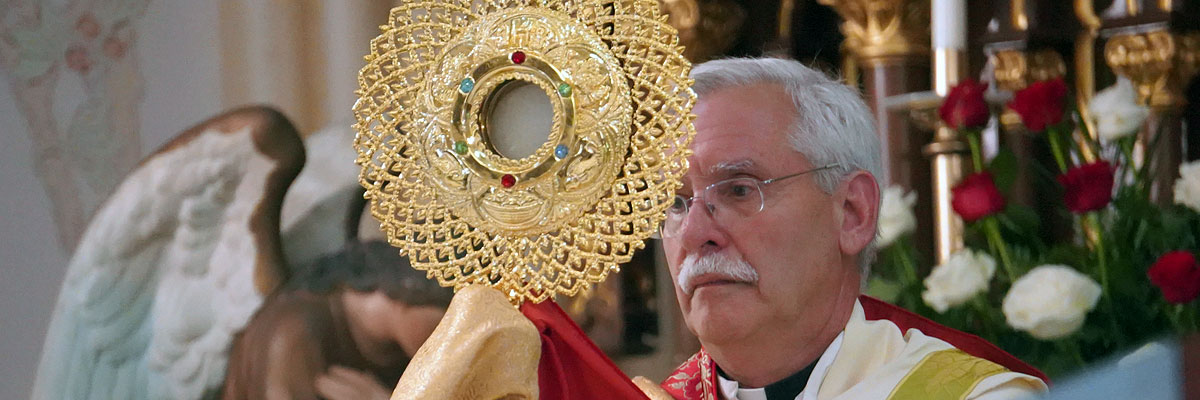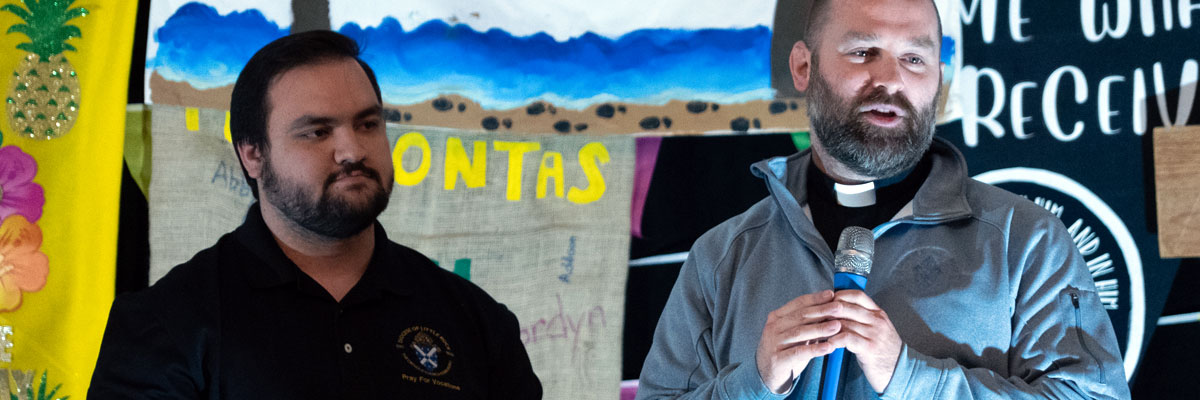Official Website of the
Catholic Diocese of Little Rock
In Bible, God’s saving Word comes to us in a real and personal way
Published: May 19, 2007
By Abbot Jerome Kodell, OSB
Since the Second Vatican Council, the lives of many Catholics have been enriched and transformed by their reading, study and meditation of the Bible. This spiritual movement came in direct response to the council’s urging of a return to the Bible, in which the faithful encounter “the power of the word of God ... the pure and perennial source of the spiritual life.” (Revelation 21)
Along the way, Catholics have become much more knowledgeable about the Bible, and this awareness has opened up new vistas in understanding and living the faith. But more than this, use and familiarity of the Bible has awakened a broader interest in all the dimensions of spiritual life in the Church.
As expected, as with any new subject, study of the Bible has generated a hunger and curiosity to know still more about the Bible, and this desire has been responded to by many Bible study programs, including Little Rock Scripture Study.
But what might not have been foreseen is that true Bible study leads not primarily to intellectual research but to prayer. It may arouse a desire to find a library, but even more to seek a perpetual adoration chapel.
When the council fathers spoke of the “power in the word of God,” they were calling attention to a vital dimension obscured in the Church in the years leading up to the council. The Church had been split by the use of certain texts of the Bible by the Protestant reformers. The ensuing controversy caused both sides to concentrate on the interpretation of these individual texts and others, and as a result the Bible came to be used as a repository of doctrinal statements, with ideas to be plucked and applied at random.
But in the Bible the word of God comes to us, not primarily as a collection of doctrinal statements, but as a gift of divine revelation by which God meets us personally, with all the love, challenge and life-giving grace that always means.
Opening the Bible is at the deepest level like entering a cathedral, where “the Father who is in heaven comes lovingly to meet his children.”(Catechism of the Catholic Church, 104)
For Catholics, because of our sacramental life in the Church, this is not hard to understand. We know that when God comes to us in baptism, or anointing, or the Eucharist, the effect is beyond our understanding, even though we try to understand the best we can. God is present and active beyond what we know or are aware of.
When the Bible itself talks about the word of God, it rarely means something written down, but an action of God on behalf of his children. The whole saving event in Christ is the “word of the cross.” (1 Corinthians 1:18) Each of the sacraments is a divine word by which God’s saving action enters our lives in pivotal moments.
The Bible is not magical, any more than are the sacraments. Without faith to receive them, the sacraments are helpless to sanctify us. And the Bible must be read “in the Church” (catechism, 1088), that is, within the faith tradition of the Church, in order to become a living word of God for us. Without that, the Bible affects us just like any other book. But read in faith and “in the Church,” the Bible is the word of God with all its transforming power.
Abbot Jerome Kodell, OSB, writes from Subiaco Abbey.









